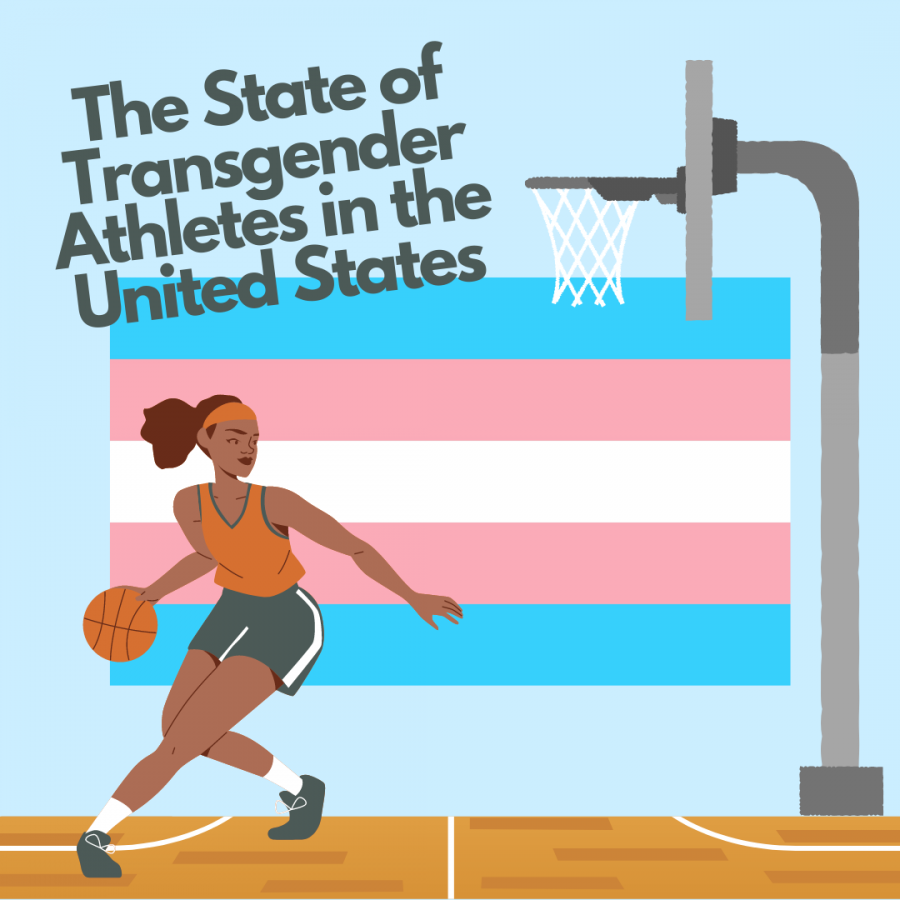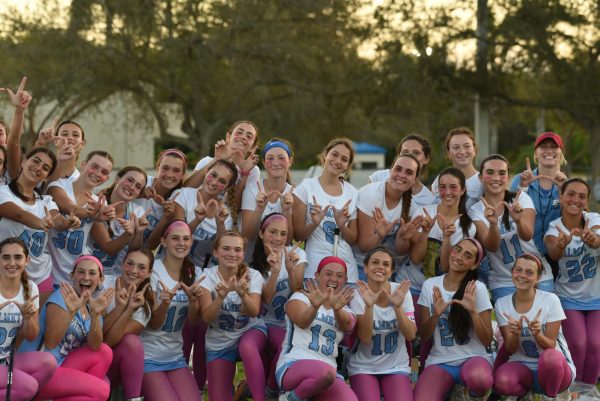The State of Transgender Athletes in the United States
November 10, 2021
On Oct. 25, Texas banned transgender girls from participating in female sports in all public schools. Texas’s recent law cements it as the 10th state to bar transgender girls from female sports; the other nine states are Idaho, Montana, South Dakota, Arkansas, Tennessee, Mississippi, Alabama, West Virginia and Florida.
These bans are the result of a recent surge of interest in the topic; in 2021 so far, state legislatures brought up 35 bills on the subject, in contrast to only 18 in 2020 and a mere two in 2019.
The state legislatures of Kansas, Louisiana and North Dakota tried to pass similar bills, but their respective state governors vetoed them.
Idaho began this trend in March 2020 when the state legislature signed the Fairness in Women’s Sports Act. Five months later, in August, a federal judge blocked the newly-passed law; it then moved to the Ninth Circuit Court of Appeals in May 2021. The court has yet to issue a final decision.
Florida’s ban — which began on June 1, 2021 — has faced similar pushback from the courts, and the family of a 13-year-old transgender soccer player has filed a lawsuit seeking to strike down the law. Florida has also faced pressure from the NCAA, which requires that all future hosts of championships ascribe to its nondiscrimination policy, which mandates allowing transgender women to play on women’s sports teams if they meet certain criteria.
Despite all of these bans on female transgender athletes in sports, there exists little conclusive data on the effect of transgender females competing in women’s sports, largely due to these effects having waning benefits based on the sport and the usual controversy associated with studying this type of data.
A 2017 systematic review paper, a type of paper which uses previous research to answer a specific question asked by researchers, found that out of the eight research articles and 31 sport policies reviewed, transgender female athletes do not have an athletic advantage regardless of her point of transition. Additionally, the paper found that a lack of inclusive environments largely deters transgender people from entering sports which, when coupled with a usually negative experience due to restrictions placed upon them, leads to a lack of transgender representation in sports. Furthermore, the paper found that of those 31 sport policies reviewed, a majority lacked proper evidence for their ruling against female transgender athletes.
A 2021 literature review, which examines previous research but seeks to develop an overall idea of a topic rather than just answer a question, found that in certain areas, transgender female athletes may have an advantage. The study found that estrogen intake and testosterone suppression affect strength, muscle size, lean body mass and bone density only marginally, leading to safety concerns and advantages in certain sports where these factors can affect the outcome. However, the study’s researchers believe case-by-case reviews offer a better solution than blanket guidelines all sports and transgender athletes must follow.
However, these changes in hormones still have a huge effect on an athlete. Competitive runner, medical physicist, transgender woman and advisor to the International Olympic Committee Joanna Harper argues that testosterone blockers and estrogen supplements lead to a decrease in red blood cells, which assist in oxygen intake, and in muscle mass, resulting in an overall reduction in speed, strength and endurance — an obvious disadvantage for many sports.
Despite these conflicting statements in research and different approaches to peer into the world of sport through transgender athletes, all of these researchers have come to a similar conclusion: there is a lack of definitive research — and not only research on transgender adult athletes, but also younger transgender athletes experiencing puberty in conjunction with their hormone supplements. This largely comes down to the fact that many organizations — especially in the United States — do not allow transgender athletes to play their sport.
Despite current American sentiment towards transgender athletes, they have begun to establish their presence internationally. At the 2020 Tokyo Olympics, New Zealand weightlifter Laurel Hubbard became the first openly transgender woman to compete at the Olympic Games. Additionally, Canadian soccer player Quinn became the first openly transgender and nonbinary gold medalist in history.
The current state of transgender athletes in the United States is unsure. With the apparent increasing and primarily conservative opposition to transgender athletes playing for their respective gender, a lack of proper research into the effects of hormone supplements and the effects of puberty on athletes, transgender athletes are still waiting on the sidelines for their time to shine.
















